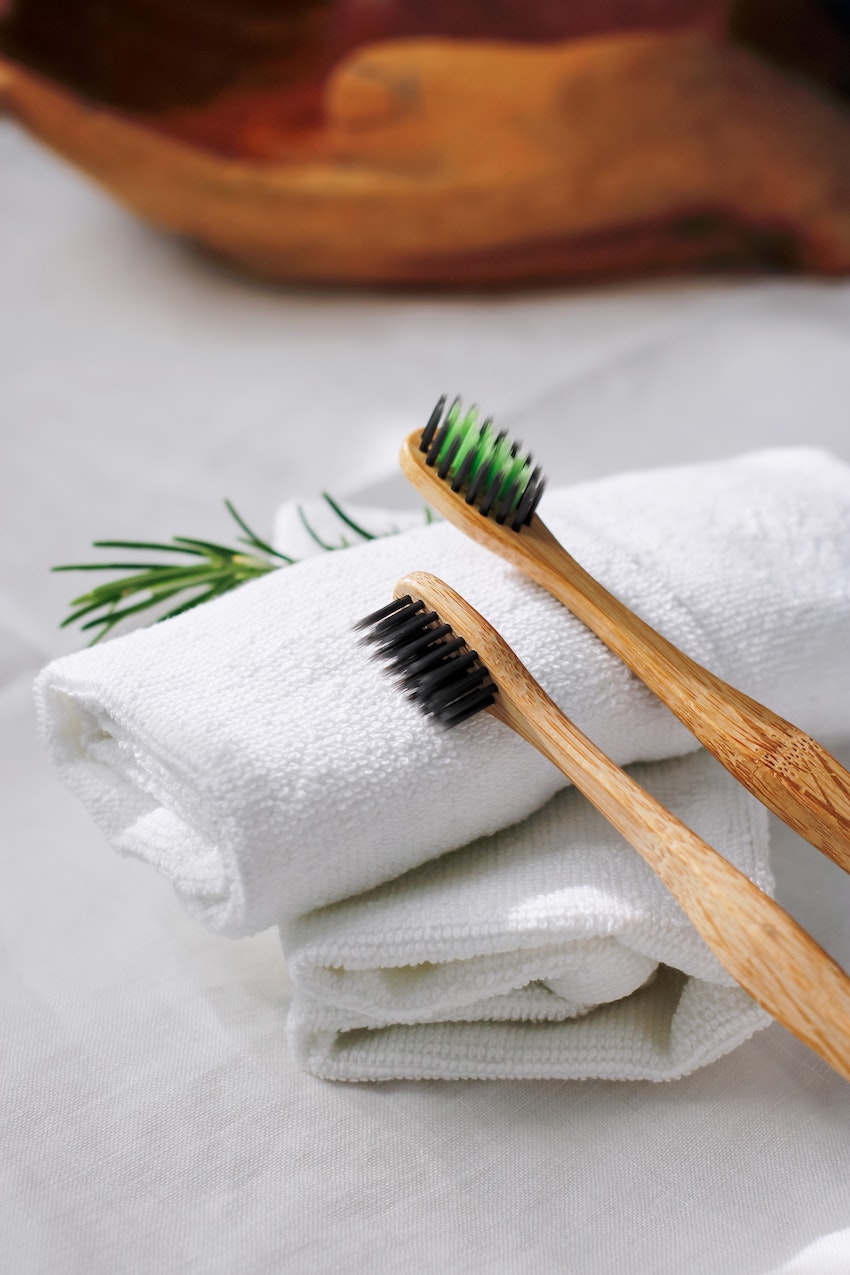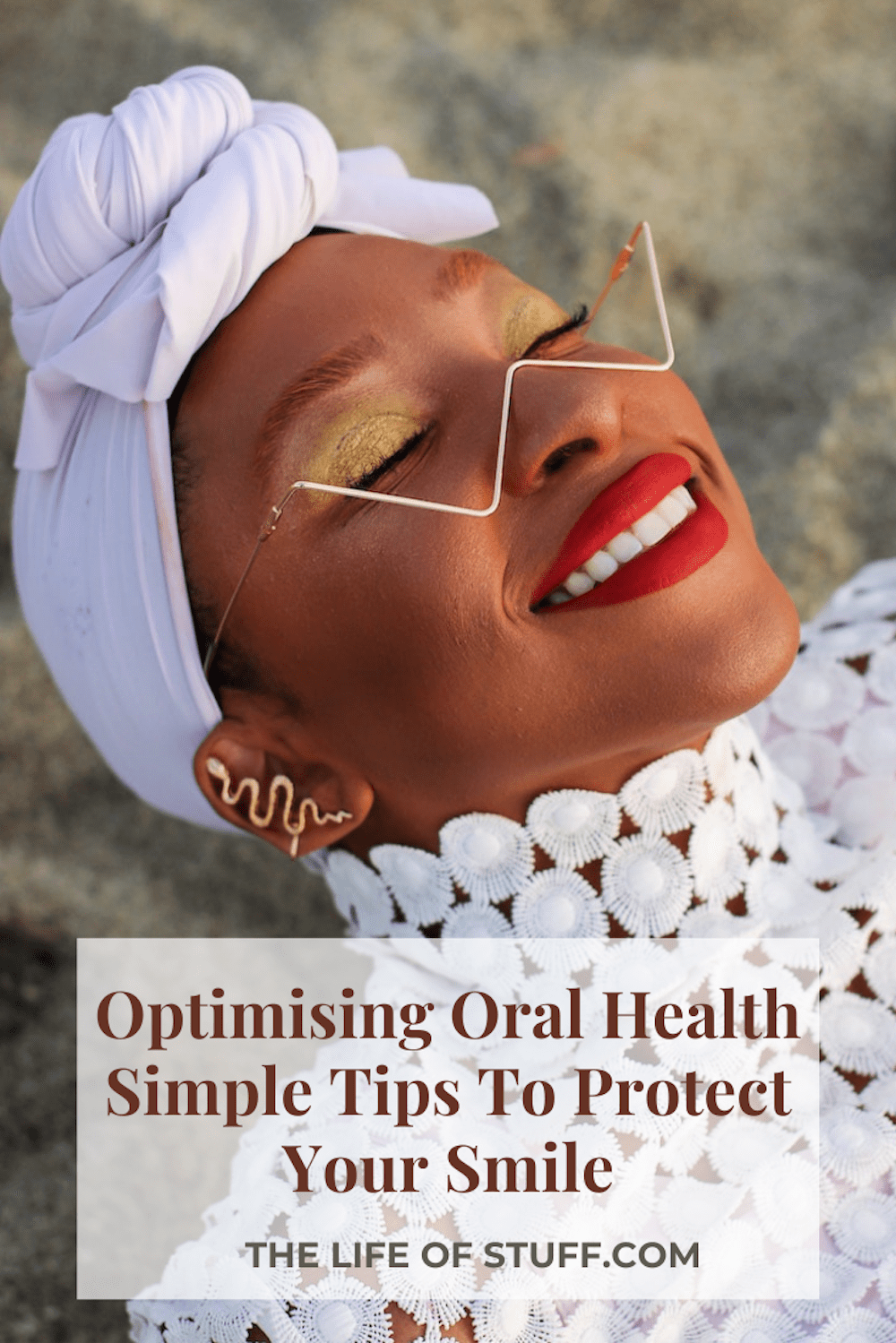Optimising Oral Health – Protect Your Smile
Oral health is often overlooked. Many of us tend to focus on eating well and exercising when we talk about health, but did you know that your dental health can have a major bearing on your general wellbeing? In this short guide, we’ll run through some simple tips to help you with ‘optimising oral health’ – to protect your smile.
Optimising Oral Health – Establish a Good Daily Oral Hygiene Routine
The most important rule to follow when embarking upon a mission to boost your oral health is to establish a good daily hygiene routine. Brush your teeth for at least 2 minutes twice a day and floss or use interdental brushes to clean between the teeth daily. Cover every individual tooth with your brush and take care to brush gently. If you brush too hard, this could damage your enamel. Once you’ve finished cleaning your teeth, use your toothbrush or a tongue scraper to clean your tongue. This will help to reduce the risk of bad breath and plaque buildup.
You should aim to brush your teeth whenever there’s a high chance of bacteria to be in your mouth. This means when you wake up, before you sleep, and possibly even after meals.

Further Reading: 5 Common Myths About Dental Health You Should Know
Optimising Oral Health – Keep Up to Date with Dental Checkups
Dental checks are short assessments, which are designed to enable dentists to keep tabs on your oral health and spot any warning signs or abnormalities as early as possible. During a routine check-up, your dentist will work through a checklist, inspecting your teeth, tongue, lips and gums to make sure that everything is in order. If you have symptoms of decay or gum disease, for example, your dentist may recommend making another appointment for treatment. Dentists recommend checkups every 6-24 months depending on your oral health status.

Optimising Oral Health – Contact Your Dentist if you Notice Changes in Your Mouth
Dental health issues tend to get worse with time. Early intervention is usually the best course of action. While some oral issues are nothing to worry about, it is always best to get checked out. If you notice bleeding when you brush, your gums are swollen, you have severe tooth pain or you have mouth ulcers that don’t seem to be disappearing, for example, see your dentist.
Choosing the right dentist for you will be a personal journey. Check for recommendations, and word of mouth (no pun intended). And be sure to feel comfortable and confident in your choice. Don’t let symptoms go on, get researching, and secure your appointment to secure your smile!
For example, you can buy mouth ulcer treatment over the counter but in some cases, slow-healing sores can be a symptom of oral cancer. Dentists check for signs of oral cancer during routine appointments. If you spot any signs, such as swelling, lumps, a persistent sore throat or red or white patches in your mouth, don’t wait for your next scheduled check.
People often find the dentist scary, especially if they haven’t been for a long time. But the reality is that a dentist is essential if you aren’t taking good care of your teeth. Not only will they help to clean and examine your teeth, but they can offer expert advice that will help you take better care of your teeth and gums in the future.
Further Reading: 3 Everyday Ways You Could Be Harming Your Teeth
Optimising Oral Health – Try to Avoid Snacking
Most of us are aware that what we eat has an impact on our oral health, but it’s also beneficial to consider your eating habits. What you eat has a major impact on your dental health. This is especially the case when it comes to foods high in sugar and carbs, as they can feed the bacteria in your mouth. Try to avoid foods that are bad for your mouth so that your teeth can stay healthier for longer. If you do eat foods that are damaging to your teeth, then try to follow it up with brushing.
Plaque is a sticky film of bacteria that forms on teeth. When you do not remove plaque from your teeth every day, it builds up. Plaque bacteria use sugar to make acid that attacks enamel, the hard surface of the tooth. The acid can attack tooth enamel for up to 20 minutes after you consume sugary foods and drinks’
Optimising Oral Health – Stay Hydrated by Drinking Plenty of Water
Water isn’t just important for your overall health, but it’s also an effective way to cleanse your mouth. This is because it rinses out the particles of food in your mouth, making it harder for bacteria to grow and become a problem.
Optimising Oral Health – Replace your Toothbrush/Toothbrush Head
If you’re brushing correctly, then the bristles on your toothbrush will eventually weaken and even go flimsy. If this happens, you won’t be able to brush your teeth well and your toothbrush is effectively useless and needs to be replaced.
Oral health plays an integral role in general health and wellbeing. Follow these simple steps to protect and enhance your smile and lower the risk of dental disease.
Photos by Nati Melnychuk – CCO Licence

Follow The Life of Stuff on Facebook | X | Pinterest | Instagram






